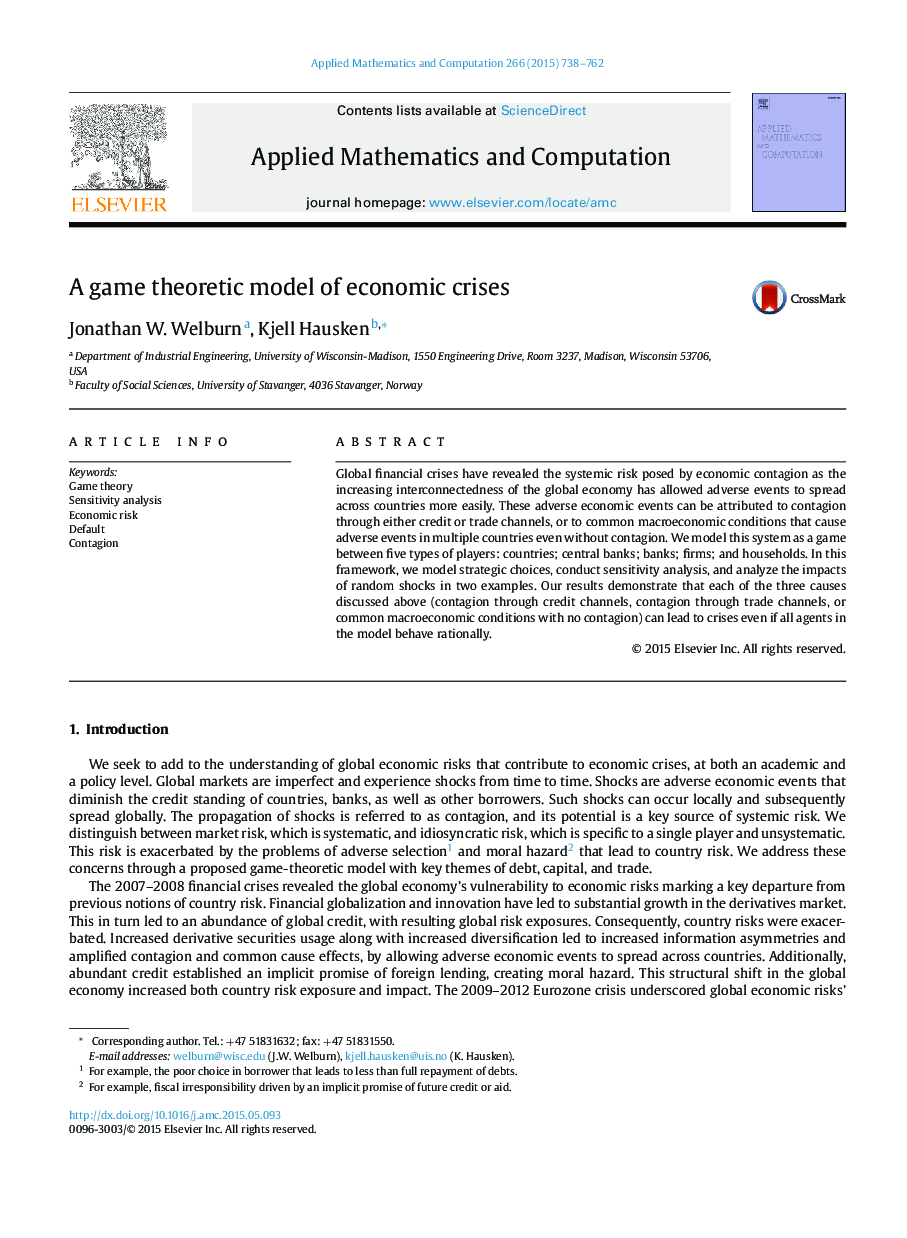| Article ID | Journal | Published Year | Pages | File Type |
|---|---|---|---|---|
| 4626556 | Applied Mathematics and Computation | 2015 | 25 Pages |
Global financial crises have revealed the systemic risk posed by economic contagion as the increasing interconnectedness of the global economy has allowed adverse events to spread across countries more easily. These adverse economic events can be attributed to contagion through either credit or trade channels, or to common macroeconomic conditions that cause adverse events in multiple countries even without contagion. We model this system as a game between five types of players: countries; central banks; banks; firms; and households. In this framework, we model strategic choices, conduct sensitivity analysis, and analyze the impacts of random shocks in two examples. Our results demonstrate that each of the three causes discussed above (contagion through credit channels, contagion through trade channels, or common macroeconomic conditions with no contagion) can lead to crises even if all agents in the model behave rationally.
